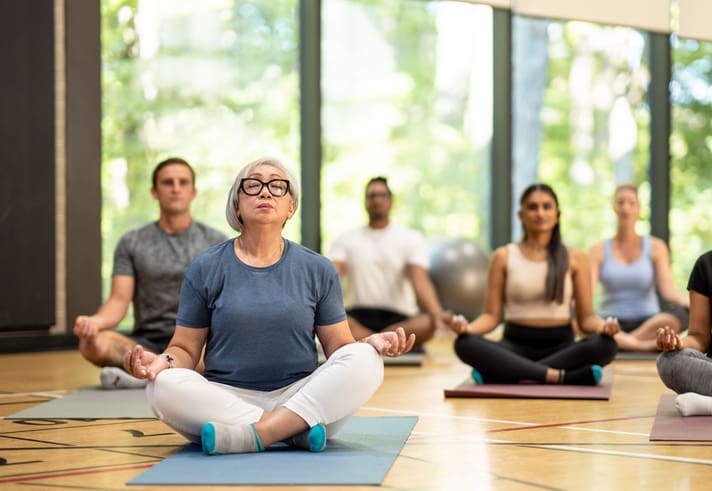Recovery is a journey that challenges and strengthens you in unexpected ways. Along the way, one vital tool you can rely on is self-care. No, not bubble baths or shopping sprees—though those might help some people! Self-care is all about nurturing your emotional, physical, and mental well-being, especially in residential recovery at St. Joseph Institute. Unfortunately, many people dismiss self-care as unnecessary, but taking care of yourself is one of the strongest things you can do to prevent relapse.
The Different Angles of Self-Care
You can practice self-care in any area of life that helps you build resilience and joy. You can look into these types of self-care and implement them into your recovery journey wherever you are in Pennsylvania:
- Emotional renewal: Talk with someone you trust, write your thoughts in a journal, or take a walk to clear your headspace. Emotional self-care means acknowledging and finding healthy ways to express feelings.
- Nature and environment: Head out into the great outdoors. Both Philadelphia’s Fairmount Park and Port Matilda’s scenic trails offer space to connect with nature.
- Money does matter: Wealth isn’t everything, but developing financial security can reduce stress. Small changes, like setting up a savings plan or reducing spending, can make you feel more in control.
Balancing responsibilities in recovery also requires intellectual, occupational, and social considerations to expand your mind, achieve work goals, and stay engaged socially.
- Stimulate your mind: Read a new book, take a class, or watch an award-winning movie that everyone’s talking about. Adding to your creative knowledge can help you take the initiative in new conversations.
- Career goals: Update your resume or enroll in training to reach the next level in your career path. Setting and achieving career milestones can allow you to grow and build confidence.
- Connection and community: Make time for recovery friends, supportive family, and virtual therapy sessions with us. Healthy social interactions and therapy breakthroughs will let you know you’re not alone and that you’re progressing.
Lastly, physical and spiritual well-being are other avenues for approaching self-care.
- Physical health: Regular exercise, eating nutritionally balanced meals, and getting regular, restful sleep can contribute to stable moods and higher energy levels.
- Higher meaning: Spiritual self-care may involve reflection, prayer, or mindfulness. It gives you inner peace and a greater connection to something beyond yourself. Whether you choose church, Bible study, or journaling, connecting with your spirit can be stabilizing in high-stress environments.
How Self-Care Can Help Shield You From Relapse
In recovery, it can feel like your brain is constantly firing on all fronts: cravings, work, stress, medicating and treating depression or other co-occurring mental disorders, financial responsibilities, etc. That’s why self-care is meaningful, helping you build healthy, substance-free coping habits when life’s punches rise to the Rocky Balboa level.
It doesn’t matter if it’s a hot Philadelphia cheesesteak or a substance-free Thursday night football game, you strengthen your ability to handle life’s pressures when you recharge emotionally and physically. This is why St. Joseph emphasizes integrating self-care into your routine. Research also supports that regular self-care reduces the chances of relapse.
Self-Care Adventures Ideas in Philadelphia
Philadelphia offers a wide range of self-care activities. Here are some real-life ideas for fun, healthy, recovery-friendly activities around the city:
- Visit a spa: For a day of Turkish bathhouse fun, head to day spas like the Aqua Experience. Their personalized treatments and herbal steam regiments can help you relax and recharge alone or with friends.
- Join sporting and fitness clubs: For an inexpensive yoga experience, check out the Practice Yoga Co-op for donation-based classes that even have Zoom options. If you need faster-paced activities, Studio LIT offers cardio, Pilates, trampoline, and dance classes.
- Explore local meal services: Sometimes, a home-cooked meal can talk you off an emotional ledge. Philly-based businesses like WellFed provide fresh, fully-prepared-meal delivery, making a balanced diet less stressful. Yes, gluten- and dairy-free options are available, as well as dessert!
Self-care Is a Gift You Give Yourself in Recovery
Across Pennsylvania, you can prioritize mental health wellness, from community-centered sports to moments of spiritual reflection. However, simply seeking help for substance use is one of the most important acts of self-care you can take.
Programs at St. Joseph support your healing journey and provide sustainable self-care ideas that get you through recovery milestones. Investing in yourself today will lead to a healthier, more fulfilling tomorrow, so take your comfort seriously and reach out to St. Joseph Institute to learn more!


